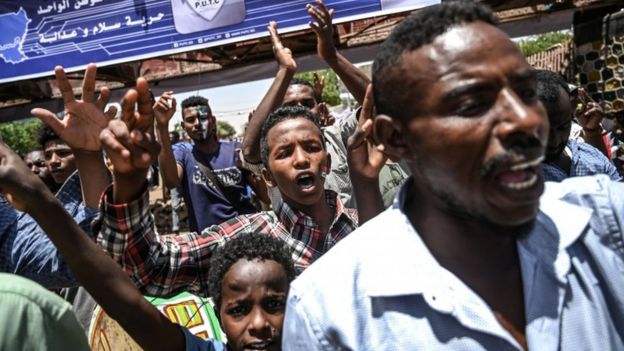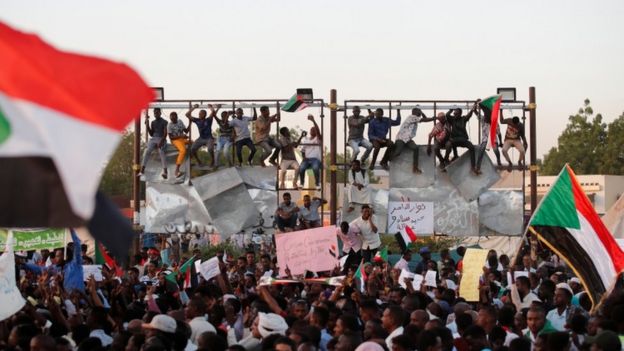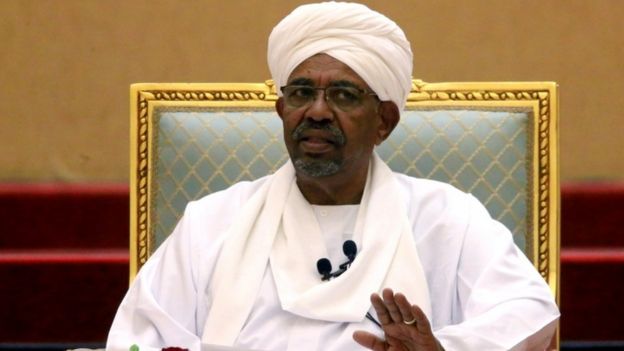
This article is more than
6 year old
They accused it of being composed of "remnants" of Mr Bashir's regime.
Thousands of protesters have gathered outside army HQ in Khartoum for a meeting to announce a civilian council they now want to take power.
The military says it is committed to handing over power and will consider a joint military-civilian council.

However, protest movement spokesman Mohamed al-Amin said they now considered the military council an "extension of the regime" and vowed to escalate the protests.
By Fergal Keane, BBC Africa Editor
The crowds are still large and the cheering is still emphatic. But after more than a fortnight of protests the broad front of groups that makes up the Sudanese opposition finds itself confronted with one of the most fundamental quandaries to face a peaceful protest movement: what to do when those you seek to overthrow refuse to accede?
The protest leaders had been expected to announce their candidates for a civilian council to rule Sudan through a transition to full democracy. But last night - after days of expectation - they failed to do that.
This has prompted speculation about divisions as different groups argue about policy and positions. Instead the opposition said it was suspending negotiations with the ruling military council and called for escalating protests.
For now the generals on the ruling military council seem to have regained some cohesion. They have also been given strong backing - including more than $3bn (£2.3bn) in aid - from the Saudis and the United Arab Emirates. There is widespread scepticism among the opposition about any military willingness to hand over power to a civilian-dominated transitional council.
The campaign to remove Mr Bashir has been spearheaded by the Sudanese Professionals Association (SPA) and it was behind the announcement of the civilian council.

The SPA held talks with the military on Saturday.
A senior SPA member, Ahmed al-Rabia, initially indicated this might delay the naming of the council but on Sunday he confirmed the announcement would go ahead at the Khartoum protest site.
The protesters want their new council to form a transitional government, leading to elections.
On Sunday it said it would respond to the call for civilian rule within a week, and indicated it might favour a joint council.
It has, however, released political prisoners and on Saturday arrested a number of top members of Mr Bashir's former ruling party.
While the military has promised not to remove protesters from their sit-in, it also called on them to "let normal life resume".
In December 2018, the government tried to stave off economic collapse by imposing emergency austerity measures and a sharp currency devaluation.

Cuts to bread and fuel subsidies sparked demonstrations in the east over living standards, but the anger soon spread to Khartoum.
The protests quickly widened into demands for the removal of President Bashir, in charge for nearly 30 years, and his government.
The Sudanese military toppled Mr Bashir on 11 April but demonstrators have vowed to stay on the streets until there is a move to civilian rule.
The economic problems brought Sudanese from all walks of life on to the streets but the organisation of demonstrations was taken on by the SPA, a collaboration of doctors, health workers and lawyers.
A large proportion of the protesters have been women and the demonstrators are mostly young.